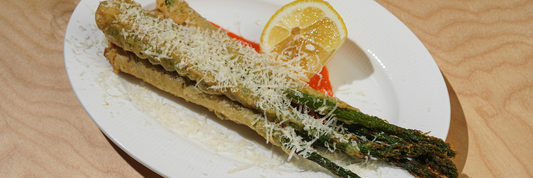Running a food truck is more than just serving delicious meals on wheels, it’s a full-fledged business that faces unique risks on the road and in the kitchen. That’s where food truck insurance comes in. From customer liability claims to equipment damage and auto accidents, the right insurance coverage can be the safety net that keeps your mobile kitchen moving forward. In this guide, we’ll break down the essential types of coverage, cost considerations, and expert tips to help you choose the best policy for your food truck operation.
- How Much Does a Food Truck Cost? A Complete Guide for Entrepreneurs
- How to Start an Ice Cream Truck Business: The Ultimate Guide to Chilling and Thrilling Success
Understanding Food Truck Insurance

What is food truck insurance?
Food truck insurance is a specialized type of coverage designed to protect mobile food businesses from various risks they face daily. It encompasses several policies tailored to the unique nature of food trucks, covering everything from accidents to property damage. This insurance is essential for safeguarding your business against potential financial losses resulting from unforeseen events.
Why is it crucial for mobile food businesses?
The mobile food industry is dynamic and can be fraught with risks. From accidents on the road to food safety issues, the potential for liability is significant. Food truck insurance provides peace of mind for business owners, ensuring that they are financially secure in the event of incidents such as:
- Customer lawsuits for food contamination.
- Vehicle accidents while on the road.
- Damage to equipment or inventory.
Having the right insurance helps in maintaining operational continuity, protecting both the business owner and the customers.
Food truck insurance requirements
Each state has specific requirements regarding food truck insurance. Generally, it's advisable for food truck operators to have certain coverages in place to legally operate. Key requirements might include:
- Proof of general liability insurance.
- Commercial auto insurance for the vehicle.
- Applicable permits and licenses.
Staying well-informed about local regulations can prevent complications with authorities and ensure compliance with food truck insurance requirements.
Types of Food Truck Insurance Coverage

General Liability Insurance
This is one of the most essential types of coverage for any food truck operator. It protects against claims of bodily injury and property damage that may occur due to your business operations. For instance, if a customer slips and falls near your food truck, general liability insurance could cover their medical expenses and legal fees, if necessary.
Commercial Auto Insurance
Since food trucks are considered specialty vehicles, standard auto insurance often isn't enough. Commercial auto insurance covers accidents that occur while driving the food truck for business purposes. This insurance can protect against liability, medical expenses, and damage to the vehicle.
Commercial Property Insurance
This coverage protects the equipment and property used in your food truck business. It typically covers risks like fire, theft, and vandalism. For example, if a fryer is damaged in a fire, commercial property insurance would help with the replacement or repair costs.
Workers’ Compensation Insurance
If you have employees, workers’ compensation insurance is crucial. It provides wage replacement and medical benefits to employees injured on the job. This insurance not only protects your employees but also helps you avoid legal issues that may arise from workplace injuries.
Business Owner’s Policy (BOP)
A Business Owner’s Policy combines several essential coverages into one package, often at a reduced premium. It typically includes general liability, commercial property insurance, and business interruption insurance. This approach simplifies management and can significantly save costs for small businesses.
Additional Coverages
Depending on the specific needs of your food truck business, consider these additional coverages:
- Equipment breakdown insurance: Covers the failure of essential mechanical equipment.
- Food spoilage insurance: Protects against losses due to food spoilage from equipment breakdown.
- Cyber liability insurance: Important if you process customer payments online or store sensitive information.
Factors Influencing Food Truck Insurance Costs
Location and operating regions
The geographic area where the food truck operates plays a significant role in insurance costs. High-risk areas, such as those prone to accidents or high litigation rates, can increase premiums. Conversely, operating in a region with a lower risk may yield lower insurance costs.
Type of food served and associated risks
Some food items carry greater risks than others. For example, if your food truck specializes in catering events with raw seafood, insurers may perceive a higher risk of foodborne illnesses, affecting the cost of your insurance.
Value of equipment and inventory
The total value of your food truck's equipment and inventory also influences premiums. High-value equipment will typically lead to higher insurance costs. Investing in high-quality equipment may protect your business better but will entail higher premiums.
Number of employees and payroll size
The larger your staff, the higher the risk for claims, which can impact insurance costs. Additionally, payroll size is often used to determine workers' compensation premiums, meaning a larger workforce can lead to increased costs.
Driving records and claims history
Your driving record and the claims history of your business can significantly influence your insurance rates. A clean record with no claims will likely result in lower premiums. In contrast, a history of accidents or claims may result in higher costs, as insurers view these as indicators of risk.
Food Truck Insurance Cost Breakdown

Understanding the costs associated with food truck insurance is critical for any operator looking to protect their business. The food truck insurance cost can vary significantly based on several factors, including location, vehicle size, and coverage types. Below, we break down the essential components of food truck insurance to help you gain insight into what you can expect.
General Liability Insurance
General liability insurance forms the backbone of any food truck insurance policy. It protects against claims made by customers for bodily injury, property damage, or advertising injury. This type of coverage is essential for addressing incidents that can occur in a high-traffic food truck environment, such as slip-and-fall accidents or food poisoning claims.
-
Cost Considerations: Depending on various factors such as the size of your food truck and coverage limits, general liability insurance can range from $400 to $3,000 per year.
Commercial Auto Insurance
Since food trucks are registered vehicles, commercial auto insurance is mandatory. This insurance covers damages to your truck and liability for injuries or damages caused to other people or property while operating your vehicle.
-
Cost Considerations: Expect to pay between $1,200 and $2,500 annually, but this can vary based on vehicle type, driving history, and location.
Business Owner’s Policy (BOP)
A Business Owner's Policy bundles liability insurance and property coverage at a discounted rate. This comprehensive approach can save on costs while ensuring that essential risks are covered for your food truck operation.
-
Cost Considerations: BOPs for food trucks can cost between $500 and $2,000 annually, based on coverage limits and the specific risks associated with your business.
Workers’ Compensation Insurance
If you employ staff at your food truck, workers’ compensation insurance is necessary. This policy provides wage replacement and medical benefits for employees injured on the job.
-
Cost Considerations: Typically, this cost is determined by your total payroll and the risk classification of your business, averaging between $1,200 and $6,000 per year.
How much is food truck insurance monthly?
When looking at monthly costs, a comprehensive food truck insurance policy can range from $100 to $300, depending on your specific coverage needs and circumstances. It’s essential to consider the various types and amounts of coverage when budgeting for these expenses.
Tips for Choosing the Best Food Truck Insurance

Finding the right insurance for your food truck involves careful evaluation and comparison. Here are some tips to ensure you choose the best coverage for your needs.
Assess your specific business risks
Every food truck operation is unique. Conduct a thorough assessment of the specific risks you face, from the type of food served to payment methods and customer interaction. This assessment will guide you in selecting tailored coverage options.
Compare quotes from multiple insurers
Don’t settle for the first quote you receive. Comparing offers from several insurance providers can uncover better coverage options at lower prices. Always check for reviews and ratings to gauge the reliability of the insurers.
Consider bundling policies for discounts
Many insurance companies offer discounts for bundling multiple policies together, such as general liability, commercial auto, and workers’ compensation. This approach not only saves money but also streamlines your coverage management.
Regularly review and update your coverage
As your food truck business evolves, so do your insurance needs. Regularly schedule reviews of your coverage to ensure it meets your current operational demands, especially after significant changes such as expansion or introducing new menu items.
The Role of Sustainable Packaging in Risk Management
Sustainable practices can play a crucial role in risk management for food trucks. Utilizing eco-friendly packaging can lower liability risks while enhancing your brand's environmental commitment.
How eco-friendly packaging can reduce liability risks
Eco-friendly packaging not only minimizes waste but can also lower the risks of lawsuits related to health and safety standards. Products that are compostable or biodegradable are often viewed favorably by consumers, which can lead to fewer claims and improved customer trust.
kimecopak.ca’s offerings for sustainable food packaging solutions
Consider exploring providers like kimecopak.ca, which specializes in sustainable food packaging solutions. Their products can help you reduce your environmental impact while ensuring that your food safety standards are met.
Conclusion
In summary, having a well-rounded food truck insurance portfolio can safeguard your business from various risks. Essential coverages include general liability, commercial auto, a business owner’s policy, and workers’ compensation.









